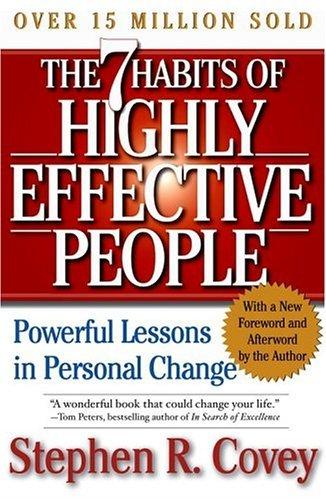Old friends. Mom’s home cooking. Your favorite pair of jeans. There’s something undeniably comforting about the familiar.
As good and necessary as that feeling of familiarity is, however, it often prevents us from connecting with new and different people. Soon we find ourselves in a bubble of familiarity associating only with people of similar interests, ethnicity, age, socioeconomic status, and so on.

How Social Media Shapes Our Bubbles
The bubble of familiarity effect is most pronounced in social media. Look at your Facebook page. Out of the last 10 people to post on your wall, how many of them share the same ethnicity, age, or socioeconomic status with you?
Websites like Facebook and Google have built-in algorithms that automatically filter out information deemed dissimilar or opposing to your viewpoints. So, for example, if you are more politically conservative, your friends who post liberal views will likely get filtered out from your newsfeed. Or if you like a certain music style, the algorithm will filter out friends with dissimilar musical tastes.
Perhaps this is one of the reasons why the Pew Research Center found that our society is more polarized along partisan lines than at any point in the past 25 years.
 Bubble Awareness
Bubble Awareness
Legendary leadership guru Stephen Covey, in his classic book The Seven Habits of Highly Effective People, provides an insight that can help us identify and start to break out of our bubbles of familiarity:
Seek first to understand, then to be understood.
He writes, “Most people do not listen with the intent to understand; they listen with the intent to reply. . . . They’re filtering everything through their own paradigms, reading their autobiography into other people’s lives.” (Covey 2013, 239)
In other words, it’s a fundamentally me-oriented attitude that leads to the bubble of familiarity.
But we can decide to live differently.
Bubble-Busting Skill: Listening
Covey suggests the best way to move from an “understand me” attitude to an “understand you” attitude is to cultivate the skill of empathetic listening:
Empathetic listening gets inside another person’s frame of reference. You look out through it, you see the world the way they see the world, you understand their paradigm, you understand how they feel. . . . You’re listening to understand. (Covey 2013, 240)
And this skill is more than just good leadership advice or political correctness. It’s also one of the most fundamental and practical ways we can serve others. As the apostle Paul wrote, “Do nothing out of selfish ambition or vain conceit. Rather, in humility value others above yourselves, not looking to your own interests but each of you to the interests of the others” (Philippians 2:3-4). What would it look like if, every day, in every conversation, in every social media interaction, followers of Jesus lived out Philippians 2:3-4 in the ways we listened to others?
Busting Bubbles Over Lunch
What would it look like if in every conversation, in every social media interaction, followers of Jesus lived out Phil 2:3-4 in the way we listened to others?
Recently I was having lunch with a friend and her parents, and the subject of guns came up. I grew up in the suburbs and have never seen or touched a gun. My friend’s parents are from rural Iowa, where guns were a normal part of life.
Honestly, during our conversation, my stereotypes of rural people or gun-rights activists crept in. I was tempted to judge them and check out. My bubble of familiarity was closing fast.
But as they shared, I started telling myself, Stop judging, stop judging. It was as if I had to literally stop an internal algorithm from filtering their perspectives out according to my beliefs, values, and experiences.
I decided to share that I had stereotypes about guns but not much experiences, and asked if they could tell me more about how guns were part of their lives. We proceeded to have an incredible conversation that, while not single-handedly solving the gun debate, connected us more deeply. My appreciation for hunting as a part of rural culture and family tradition grew. I gained an awareness of the deep divide between urban/suburban and rural communities. And I got a free lunch!
It’s not easy to live outside our bubbles, but there are simple things we can practice every day that can help. Here are four empathetic listening skills that allow us to resist bubble-based living.
Four Skills for Empathetic Listening
Learn to ask good questions. The less you talk, the more opportunities you have to listen. Asking a lot of good questions increases the chance that you’ll understand the other person’s views and communicate respect to the speaker.
Learn to use the phrase, “Can you please tell me more about. . .” You don’t even need to formulate a question—just invite the other person to tell you more about the topic that you need to better understand.
Learn to withhold judgment. Empathetic listening means learning what it’s like to walk in someone’s shoes before you form an opinion about their beliefs. This doesn’t mean you can never assess the merits of a viewpoint. Rather, it means listening with a genuine desire to understand before attempting any kind of critique.
Learn to stop your mind from pre-generating responses or rebuttals. When we are seeking to be understood, we invest more mental energy on what we’re going to say than on what we’re hearing. Empathetic listening means turning off or turning down the part of our brain that pre-generates responses as the other person is sharing. Instead, focus on listening and understanding well.
Places to Practice the Skill of Empathetic Listening
- ONLINE: Subscribe to or bookmark media websites from perspectives that are different from yours. Practice suspending judgment. (Extra points: find a media or political personality you vehemently disagree with and try to understand their side.)
- IN REAL LIFE: Better yet, have a real-life conversation with someone at work or on campus who has vastly different viewpoints or interests than you. Visit a political club, a brown bag lunch, a religious group meeting, a lecture, or a departmental social function. As you meet people, practice listening well and seek to more deeply understand that individual and their community.
- IN YOUR CHURCH/CHAPTER: Find someone who is different from you (particularly along ethnic, age, or socioeconomic lines) and invite them out to coffee to get to know them better. Practice seeking to understand rather than to be understood. Get to know them on their terms rather than on yours.
It’s not easy to live outside our bubbles of familiarity. But in an increasingly polarized and divided world, Christians have an amazing opportunity to be different by demonstrating the loving, serving heart of our Lord Jesus Christ in the way we listen to those who are different from us. And who knows? There could also be a free lunch or two along the way.
*This article was originally featured on The Blog of InterVarsity Christian Fellowship, an excellent resource for faithful, thoughtful Christian living in college and beyond.